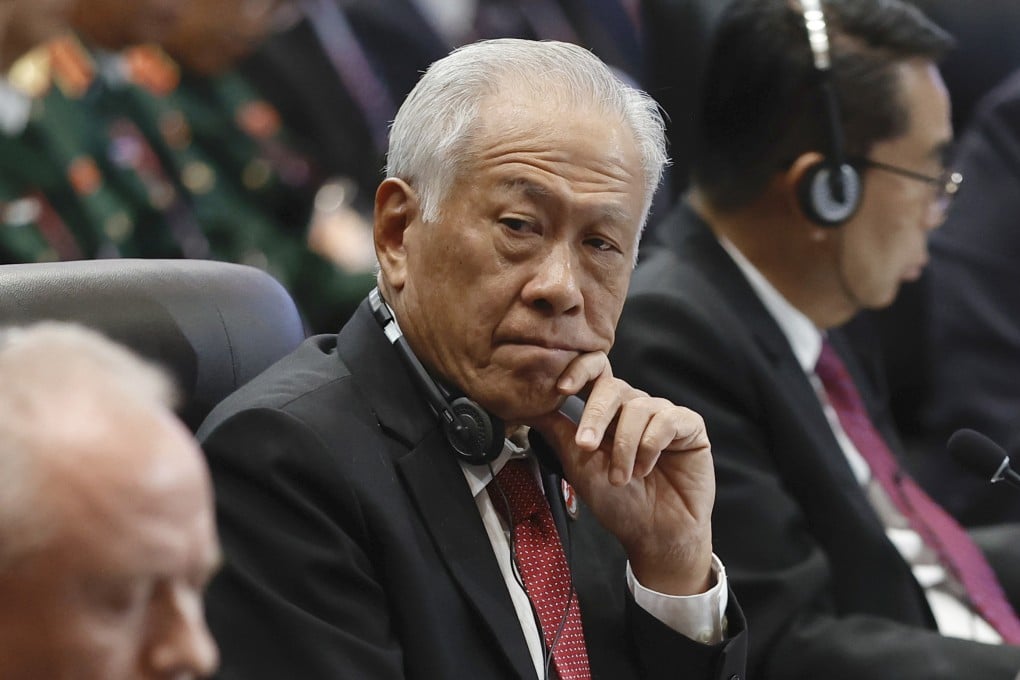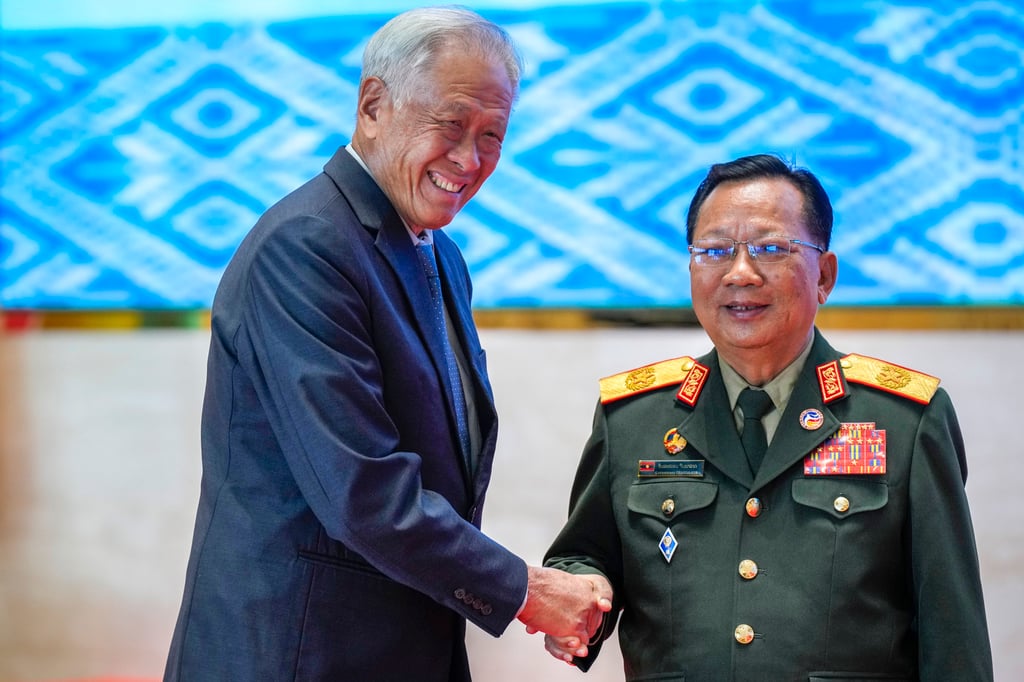Is Myanmar a threat to Asean centrality? Singapore warning at defence talks underscores worry
Singapore’s Defence Minister Ng Eng Hen said Myanmar’s actions could foster a “politics of retaliation” and urged the junta not to exploit Asean for its own interests

Analysts expect differences between junta-led Myanmar and the bloc to continue to hinder decision-making processes, but argue the more pressing concern is how this will test Asean centrality, which refers to the bloc being the primary regional platform for addressing common challenges and engaging with external powers.

Muhammad Faizal bin Abdul Rahman, a research fellow at Singapore’s S. Rajaratnam School of International Studies, noted that Asean’s principles of non-interference and sovereignty make Myanmar a “thorn in the community” because these principles enable the junta to avoid addressing the fundamental reasons for the violence and human rights violations in the country.
“It makes multilateral defence cooperation in Asean, such as counterterrorism and digital defence, difficult as there are concerns that the junta could use the knowledge gained against the Myanmar people instead of actual threats to human security,” he said.